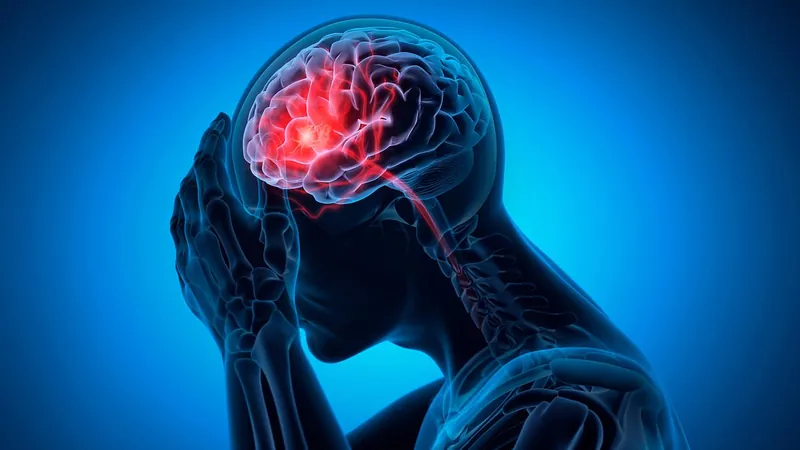
Are Your Headaches Serious? A Neurologist’s Essential Guide to Identifying Potential Risks!
2024-11-21
Author: Jessica Wong
Headaches are a common complaint, often linked to stress, dehydration, or fatigue. However, they can also signal something far more serious, such as a brain tumor or a brain bleed.
In an informative Instagram post, renowned neurologist Dr. Baibing Chen shared critical insights on how to differentiate between benign headaches and those that may indicate serious medical conditions.
Dr. Chen highlighted two major symptoms that should raise immediate concern: If your headache suddenly changes in intensity or quality—especially if it feels like a 'thunderclap'—or if it lasts longer than usual, it could be a sign of a significant issue such as a hemorrhage, tumor, or an aneurysm. Thunderclap headaches, named for their sudden and severe onset, can lead to excruciating pain compared to anything you've experienced before, and require urgent medical attention.
The NHS recommends that anyone experiencing such intense pain should call emergency services or head to the nearest Accident & Emergency department right away. A thunderclap headache might indicate a ruptured blood vessel in the brain, a condition that can lead to severe complications including long-term disability, coma, and potentially death.
Moreover, Dr. Chen emphasized that frequent or new headaches should never be overlooked, as they might also suggest the presence of a brain tumor. Regular consultations with a general practitioner are advised to monitor any changes in headache patterns.
In addition to discussing red flags, Dr. Chen warned his followers about certain treatments that could pose risks. He mentioned the controversial practice of neck manipulation performed by some chiropractors. This procedure involves adjusting the cervical spine and can occasionally result in serious complications, such as vertebral artery dissection, which may subsequently cause a stroke.
He further elaborated on one of the most distressing outcomes of a brainstem stroke: locked-in syndrome. This rare condition leaves individuals aware and awake but unable to move or speak, as their voluntary muscles are rendered paralyzed, with the exception of certain eye movements.
On a preventive note, Dr. Chen stressed the importance of sufficient, quality sleep. Chronic sleep deprivation can not only elevate the risk of neurological disorders but also has been connected to the onset of dementia. He advocates for sleep prioritization, revealing that despite his demanding schedule in the hospital and responsibilities as a father of two, he aims for at least six hours of quality sleep each night.
The NHS generally advises adults to aspire to seven to nine hours of restful sleep to maintain optimal health.
Understanding the nuances of headache symptoms and the implications of head pain can be crucial for timely intervention. If you notice alarming changes in your headaches or overall health, do not hesitate to reach out to a healthcare professional for guidance. Your well-being could depend on it!




 Brasil (PT)
Brasil (PT)
 Canada (EN)
Canada (EN)
 Chile (ES)
Chile (ES)
 España (ES)
España (ES)
 France (FR)
France (FR)
 Hong Kong (EN)
Hong Kong (EN)
 Italia (IT)
Italia (IT)
 日本 (JA)
日本 (JA)
 Magyarország (HU)
Magyarország (HU)
 Norge (NO)
Norge (NO)
 Polska (PL)
Polska (PL)
 Schweiz (DE)
Schweiz (DE)
 Singapore (EN)
Singapore (EN)
 Sverige (SV)
Sverige (SV)
 Suomi (FI)
Suomi (FI)
 Türkiye (TR)
Türkiye (TR)